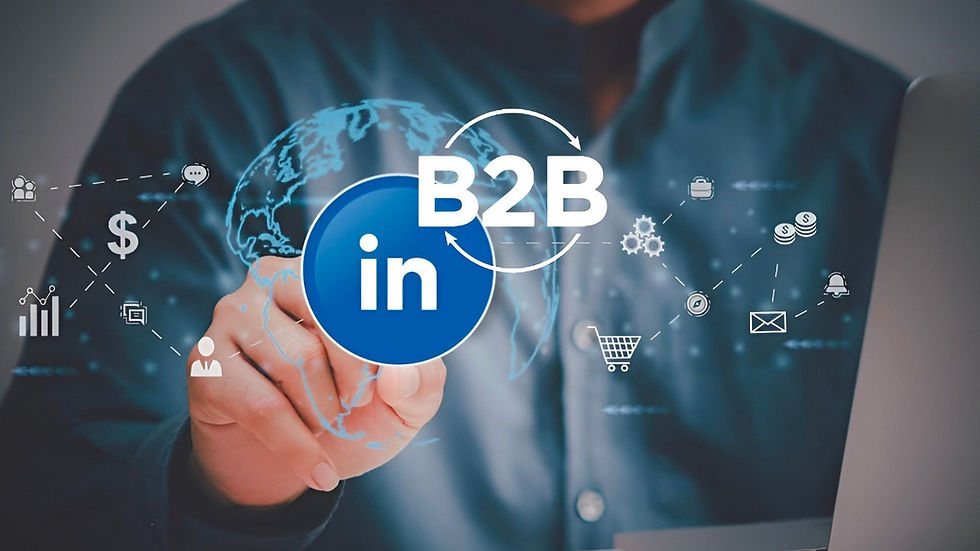Multi-Factor Authentication: A Simple Security Guide
- bizionictech
- Aug 20, 2025
- 3 min read
Multi-factor authentication is one of the most reliable ways to keep online accounts safe in an age where digital threats are becoming smarter every year. Instead of relying on just a password, it adds extra steps to verify who you are before allowing access.

What Does “Factor” Mean in Security?
When talking about authentication, a “factor” is simply the proof you give to confirm your identity. This proof falls into three main types:
• Something you know – such as a password or PIN.
• Something you have – like your phone, a key fob, or a smart card.
• Something you are – biometrics like fingerprints, facial scans, or voice patterns.
The more varied the factors, the harder it becomes for a hacker to get through.
Understanding Multi-Factor Authentication
Multi-factor authentication (often shortened to MFA) means using two or more different types of proof before granting access. This way, even if one piece of information—like your password—is stolen, the attacker would still need the other factors.
For example, you might log in with your password and then confirm a code sent to your phone, or combine a fingerprint scan with a hardware security key.
Where Two-Factor Authentication Fits In
Two-factor authentication (2FA) is a form of MFA that involves just two steps. A common example is entering your password and then approving a login through an authenticator app.
While 2FA is a big improvement over password-only logins, MFA with more than two factors offers even greater security.
Why It Works
Most cyberattacks succeed because a password is stolen, guessed, or leaked. By adding additional verification steps, MFA drastically reduces the chances of someone breaking into your accounts. It also protects against phishing, because a password alone won’t give attackers full access.
Depending on your needs, you can use an SMS-based 2FA code, an authenticator app, or even go passwordless for a smoother experience.
Advantages of MFA and Adaptive MFA
The benefits go beyond stronger protection:
• Prevents breaches by blocking most unauthorized logins.
• Helps meet compliance rules in regulated industries.
• Builds customer trust through visible security measures.
Adaptive multi-factor authentication adds flexibility. It analyzes each login attempt and decides how much verification to require. If you log in from your usual location and device, it might only ask for one extra step. If something looks suspicious, it will require more.
Why Businesses Need It in 2025
With remote work, cloud platforms, and online transactions becoming standard, security risks have increased. Passwords alone are no longer enough.
Small and medium-sized businesses are especially at risk because attackers know their security budgets might be smaller. MFA is one of the most affordable ways to protect sensitive data, employee accounts, and customer information.
How Bizionic Technologies Can Support You
At Bizionic Technologies, we help Detroit businesses and clients across the US, put strong, user-friendly security in place. Our team can recommend and set up the right MFA solution for your needs, whether that’s SMS-based 2FA, authenticator apps, adaptive MFA, or passwordless systems. Our security services include:
• Designing a security plan tailored to your business
• Integrating MFA with your current systems
• Providing ongoing support and monitoring
• Helping meet compliance requirements
With us, MFA is more than just an extra step, it’s a smart investment in your company’s safety.
FAQs
What distinguishes two-factor authentication from multi-factor authentication?
Two-factor authentication employs two verification methods, whereas multi-factor authentication can utilize two or more methods.
Is SMS-based 2FA still secure in 2025?
It’s more secure than just a password, but it’s not the safest option because of risks like SIM swapping. Authenticator apps and hardware keys provide stronger protection.
What are the best MFA solutions for small businesses?
That depends on your setup and budget. Many small businesses choose authenticator apps, passwordless authentication, or adaptive MFA for a balance of security and convenience.
How does a passwordless authentication system work?
It skips passwords entirely, relying instead on methods like biometrics, security keys, or one-time codes sent to a trusted device. This reduces the risk of stolen passwords.
Which is safer: Authenticator apps or SMS codes?
Authenticator apps are typically more secure. They produce codes that refresh every 30 seconds and do not depend on mobile networks, making it more difficult for attackers to capture them.
Final Words
Online threats aren’t slowing down, and neither should your security measures. Adding multiple layers of verification is one of the most effective ways to keep your accounts and systems safe without making life harder for legitimate users.
At Bizionic Technologies, we help businesses strengthen their defenses with customized MFA solutions that balance security and convenience. Because protecting your data today means protecting your future. Secure your business today, get in touch with Bizionic Technologies today.




Comments